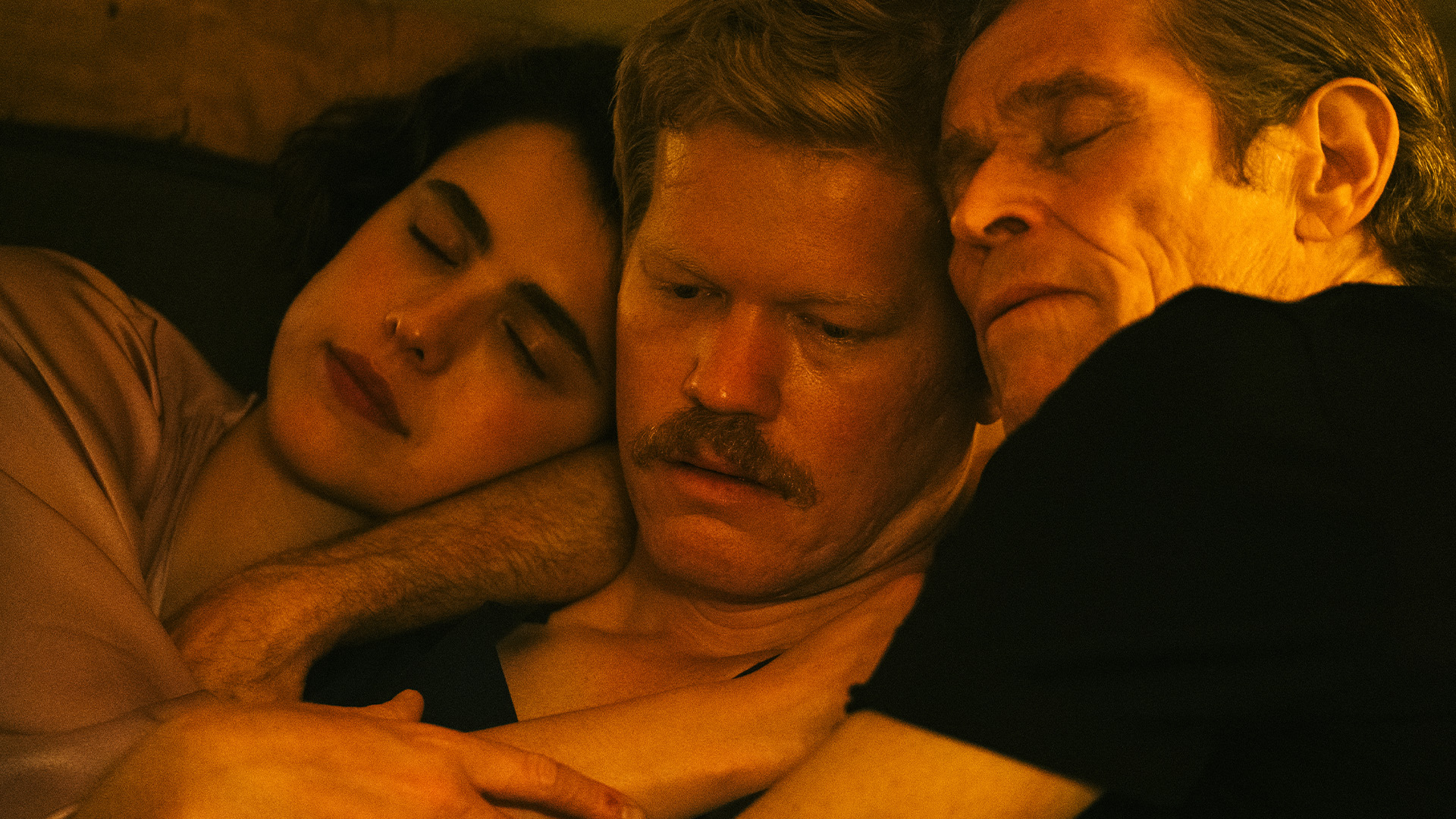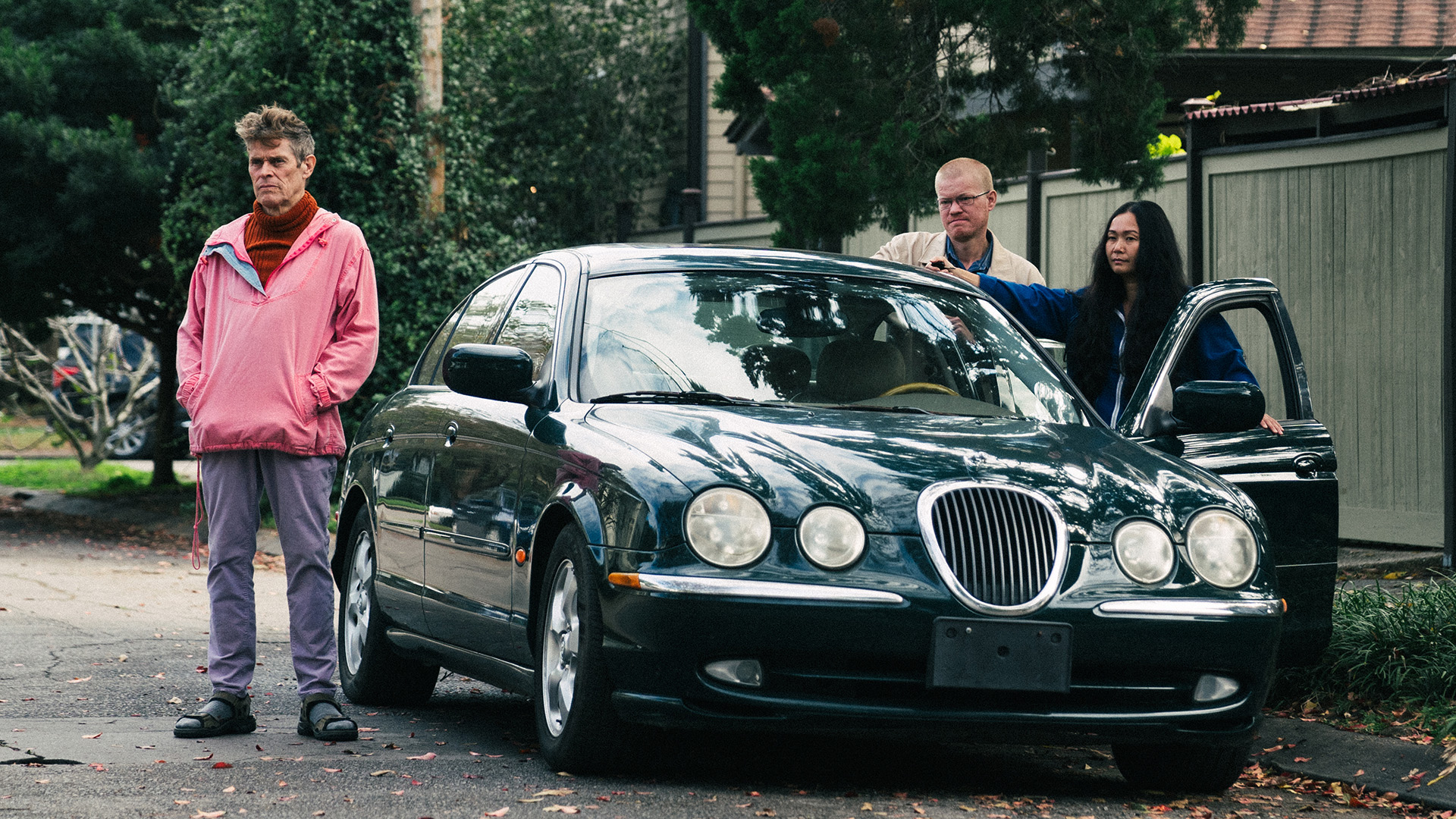The delirious thrills of Yorgos Lanthimos’ Kinds of Kindness

Director Yorgos Lanthimos tells three loosely connected stories in Kinds of Kindness. Rory Doherty saw the incisive and shocking new film at Cannes.
Yorgos Lanthimos movies are nearly all about abuse, or at least all feature it in some startling, nasty, and pointedly satiric way. The Greek New Wave pioneer who most recently graduated to Oscar fame has always been fascinated with control, and how punishing, insular systems recondition our reality. This can be achieved through language, as in Lanthimos’ breakout film Dogtooth, or through romance and sex like in The Lobster and The Favourite.
In Kinds of Kindness, destructive dependence is nurtured and extended in nearly every scene, as the unfortunate inhabitants of the three sub-hour anthology instalments go to horrid lengths to belong and be meaningful. It feels even more punishing because the characters are played by the same rotating troupe of seven actors, and the abuse becomes more pointed in each successive chapter. Please, for the love of god, give Jesse Plemons a moment’s peace.

Lanthimos’ last two works, both Oscar-winning period pieces (The Favourite and Poor Things) take a broader, less surreal approach—well, they both trade in some degree of surrealism, but it’s used to delight rather than unsettle. That’s not the case with Kinds of Kindness, a film that contradicts its detached, airless mood with pointed, near-constant cruelty, as if the filmmaker’s intention to objectively survey human nature in lab-like conditions is betrayed by his personal desire to take advantage of his position of power.
The inherently hostile nature of the director is underlined in Kinds of Kindness’ opening chapter, “The Death of RMF”, wherein abusive business executive Raymond (Willem Dafoe) controls every waking moment in his employee Robert’s (Jesse Plemons) life, even making him re-enter a room over and over until it satisfies him. It’s a funny moment that continues Lanthimos’ trend of finding humour in meaningless physical effort, but forgive us for also spotting a pastiche of over-meticulous artists.

An upside of “The Death of RMF” being the weakest of the three stories is that the film only gets more incisive and shocking from here. But by the end of Robert’s disintegration, we don’t feel like the rug has been pulled out from under us when it ends in a strangely neat, if violent, fashion. But the power play behind an unfeeling elite with a taste for suffering and the faceless suit who doesn’t realise how much he depends on authority’s approval makes for a suitable foundation to build upon. As we push through the 164-minute film, the macabre dreaminess, vicious gore, and severe tonal shifts into abject terror lead us towards a finale that feels, strangely, as transcendent as it is a dismissive anti-punchline.
Kinds of Kindness marks a shift in Lanthimos’ mainstream career—he’s been reunited with his long-serving screenwriting collaborator Efthimis Filippou. After collaborating on four features (two in Greek, two English-language) and one short film (hey does anyone remember Nimic?), Lanthimos teamed with Australian writer Tony McNamara for his historical comedies. The Favourite and Poor Things were both successes, but it still felt like something of Lanthimos’ deranged bite had been compromised; the films were too content to swim around in verbose dialogue, posh people saying “fuck”, and generally what an antiquated society would find shocking.
Lanthimos and Filippou make up for lost time here with three tales that feel fused to each other on levels deeper than their shared cast, like a bunch of codependent sickos. Themes and motifs that rear their head across the triptych: dreams as omens; restrictive eating; performing grievous violence to win back approval. Kinds of Kindness excels in this elongated form, allowing crosstalk between different victims and perpetrators, and giving the ensemble the chance to don eerily similar and diametrically-opposed roles. There’s less unity in the characters of Margaret Qualley, Hong Chao, Joe Alwyn, and Mamoudou Athie, who sometimes are only afforded one-scene bit parts, but the main trio of actors—Emma Stone, Jesse Plemons, and Willem Dafoe—have a strong sense of harmony between their roles.
Willem Dafoe gets to exert cultish power twice; Jesse Plemons tries to establish a malformed independence twice. Emma Stone channels a lot of her recent The Curse energy and takes a larger centre-stage position in each segment, moving from supporting player in Raymond’s scheme to an indecipherable entity taking a marine biologist wife’s place in “RMF is Flying”. She finally burns like a lit, volatile match as a cult member trying to source a prophesied healer in “RMF Eats a Sandwich”.
It’s in this last story where the incessant cruelty of Kinds of Kindness threatens to break the film’s delirious thrills, as a sharp turn into sexual violence veers Lanthimos’ film into a zone of panicked trauma that’s more intimately realised than the other misery we’ve seen inflicted. But Kinds of Kindness uses the upsetting plot point to forge a maligned, shaky catharsis for its victim—an impactful final note to end an exploration of carnal, unspeakable need. Lanthimos’ longest, nastiest film yet marks an unapologetic turning point for his studio filmmaking, and will neatly divide the converts from the squeamish. For those who joined the train at The Favourite, this is what you’ve been missing.
Originally published by Flicks on May 14, 2024



















